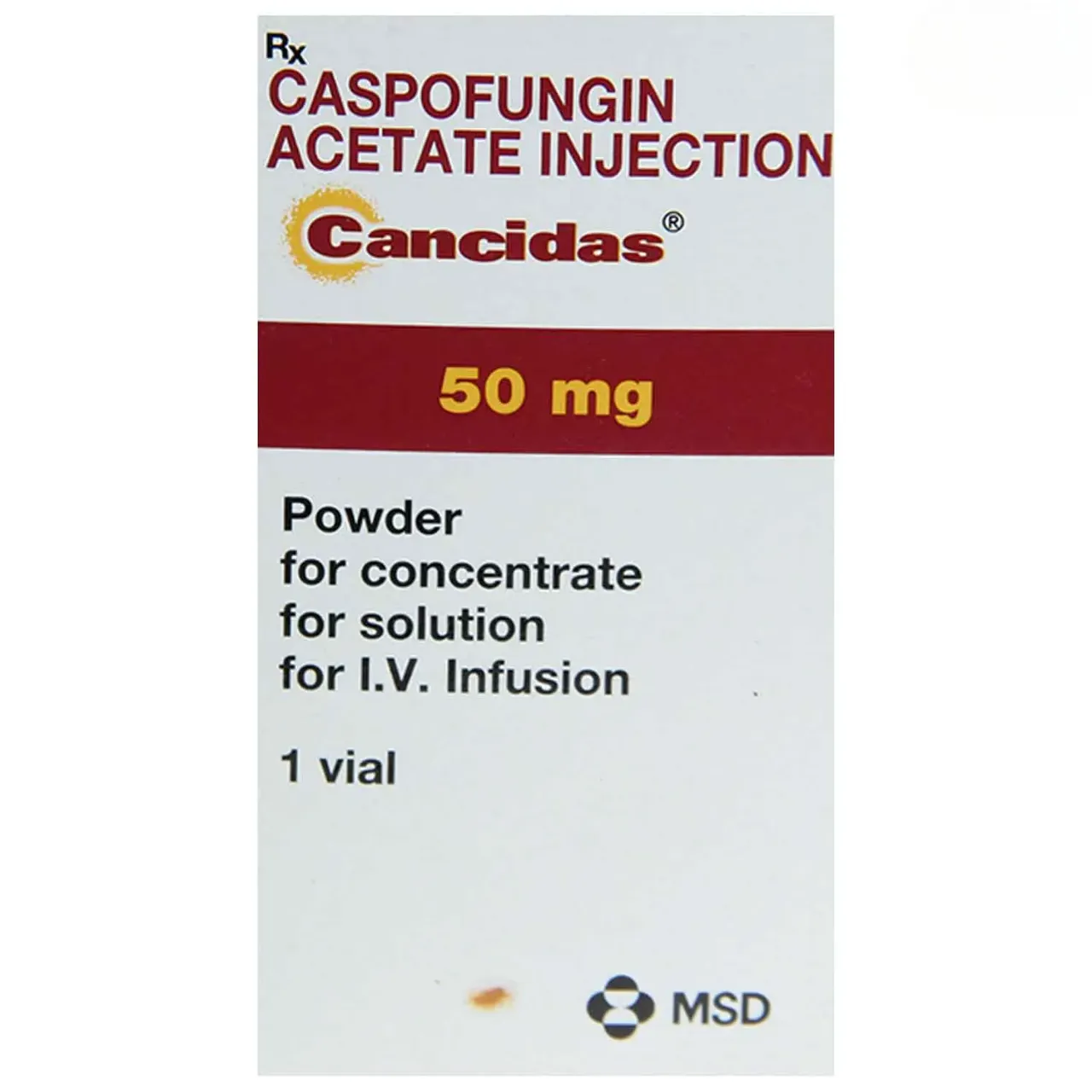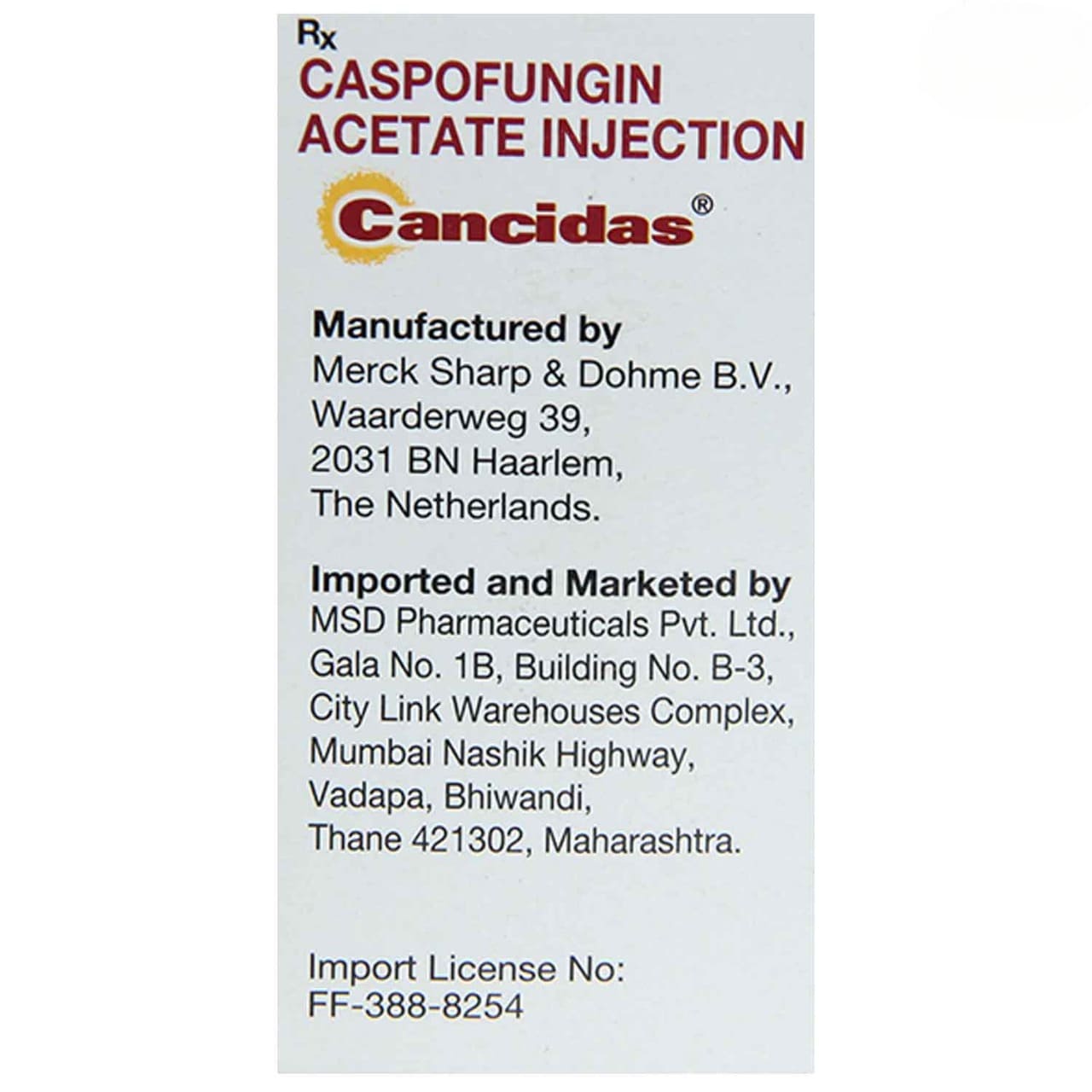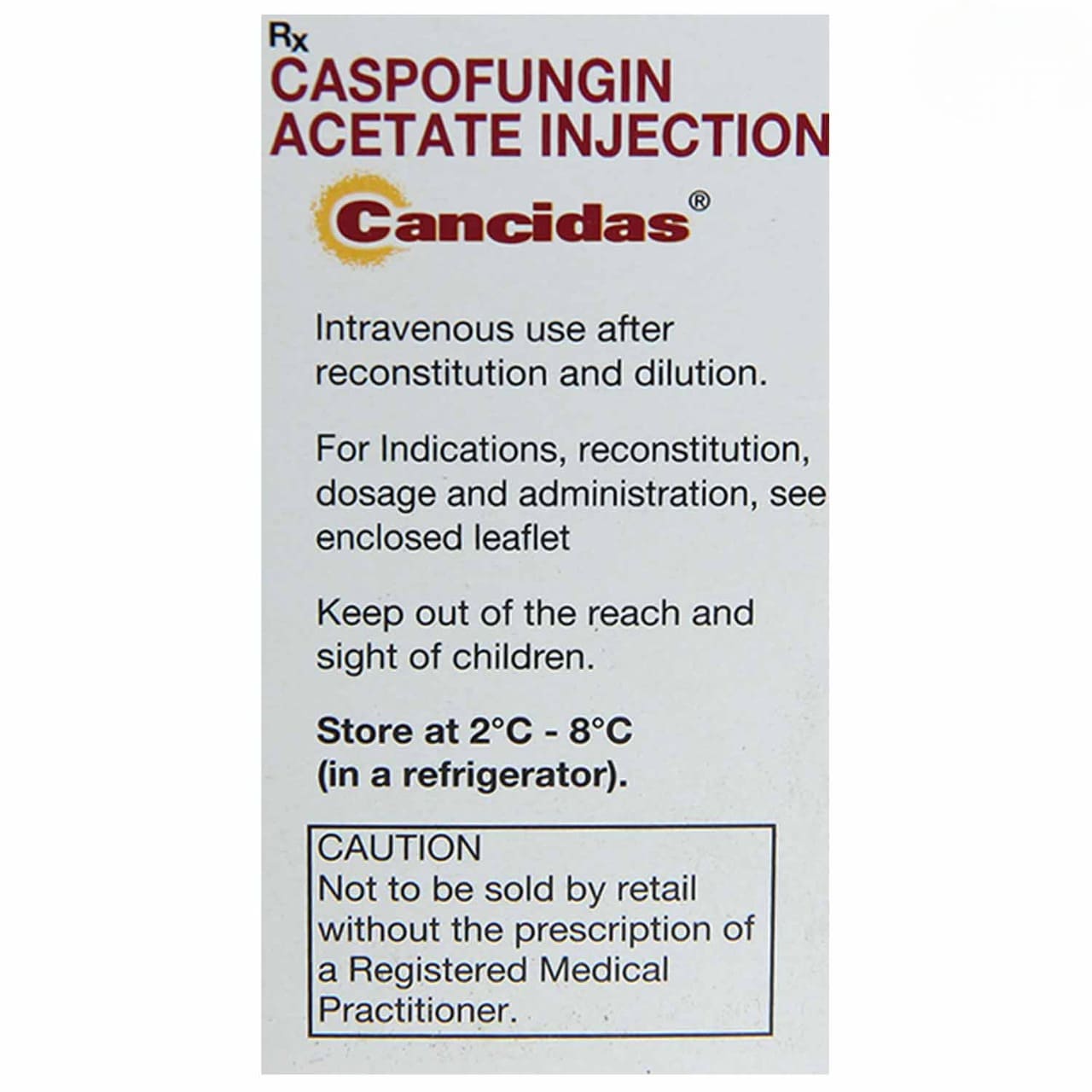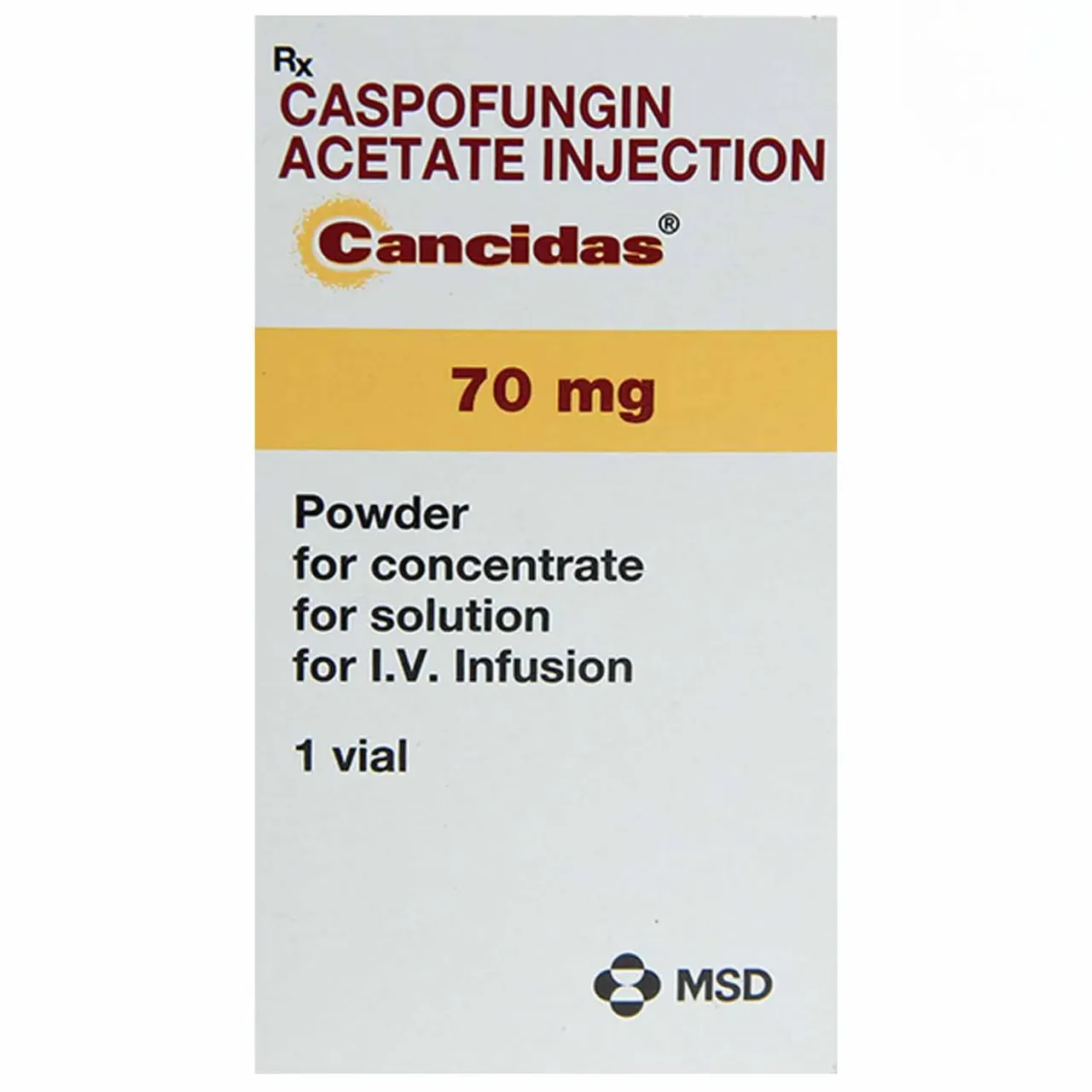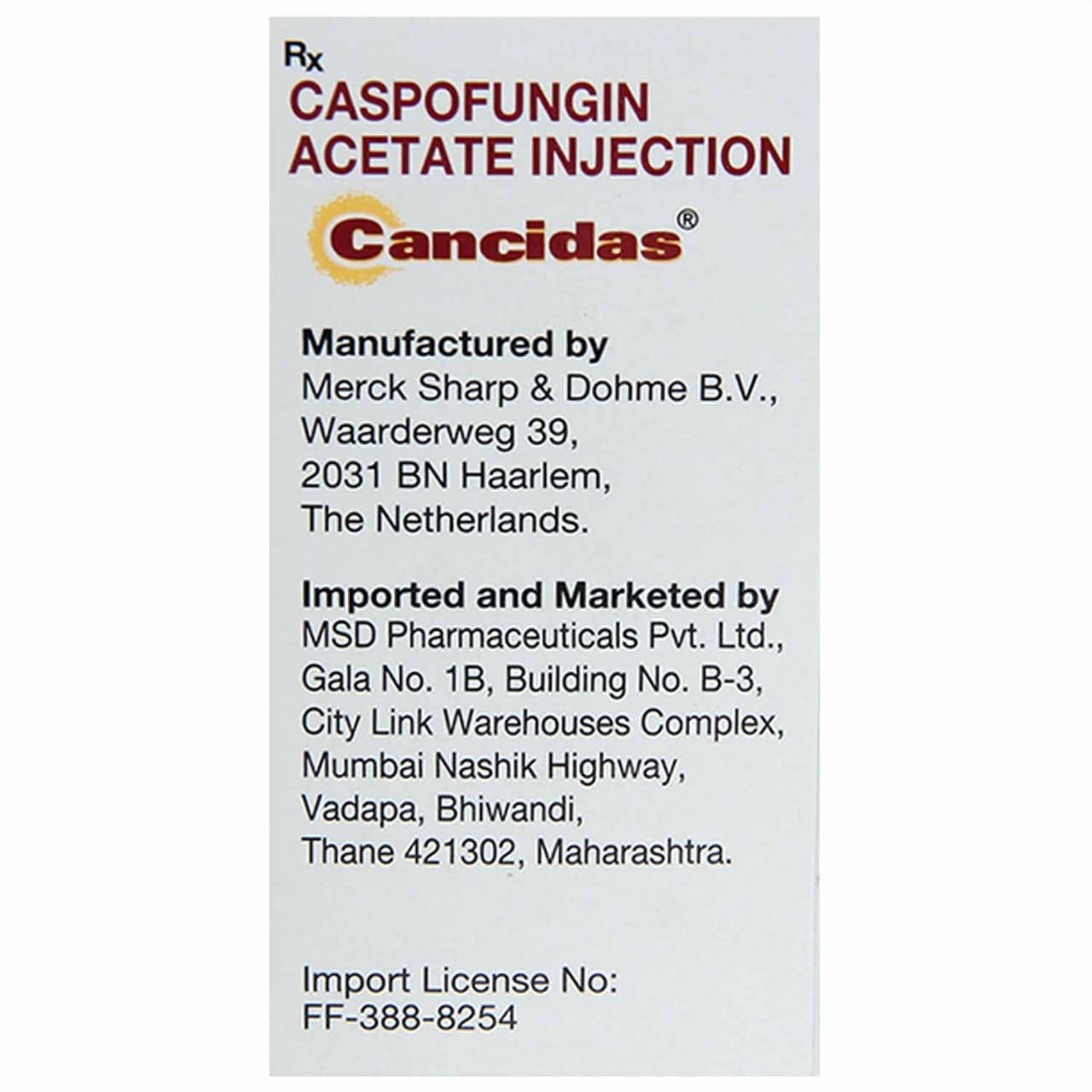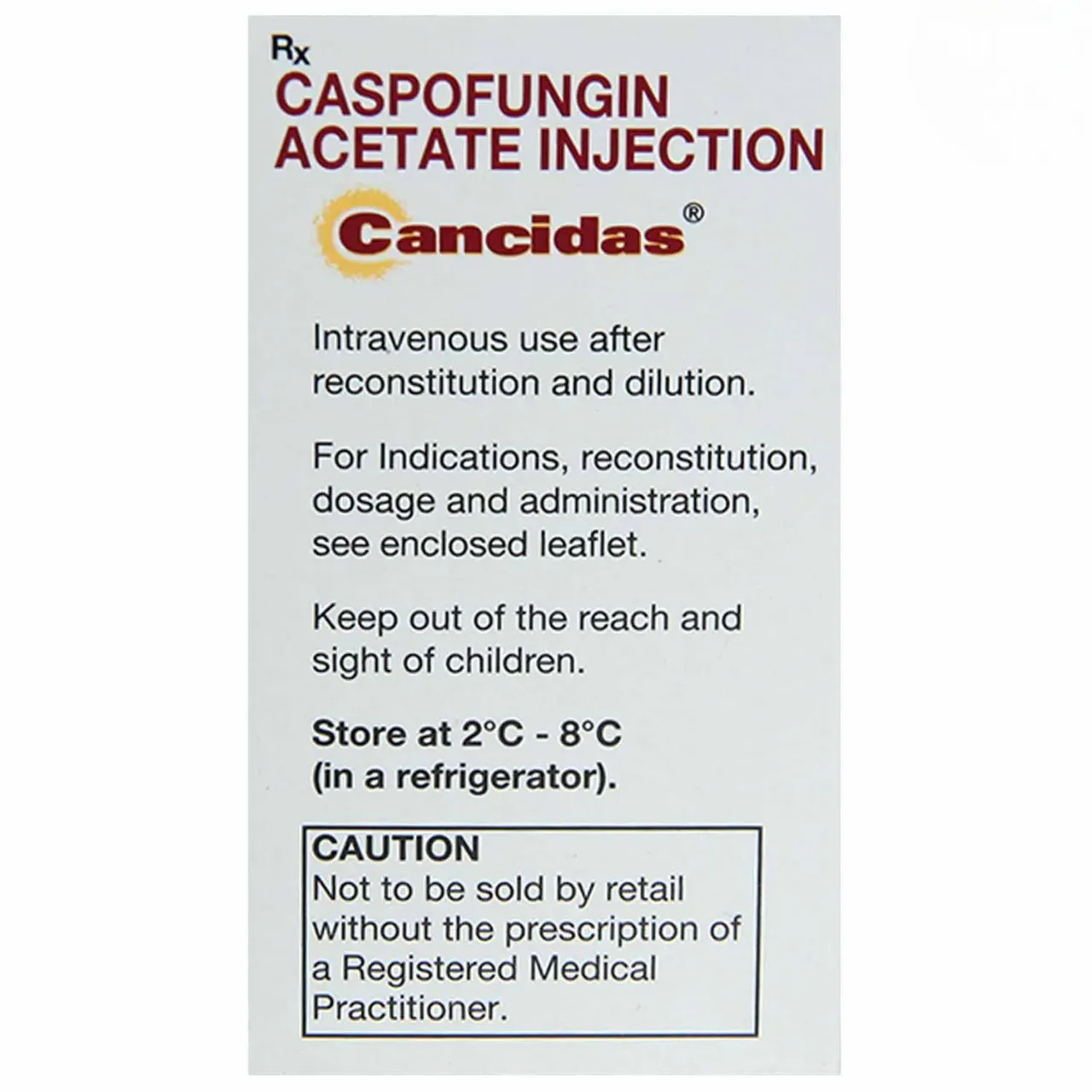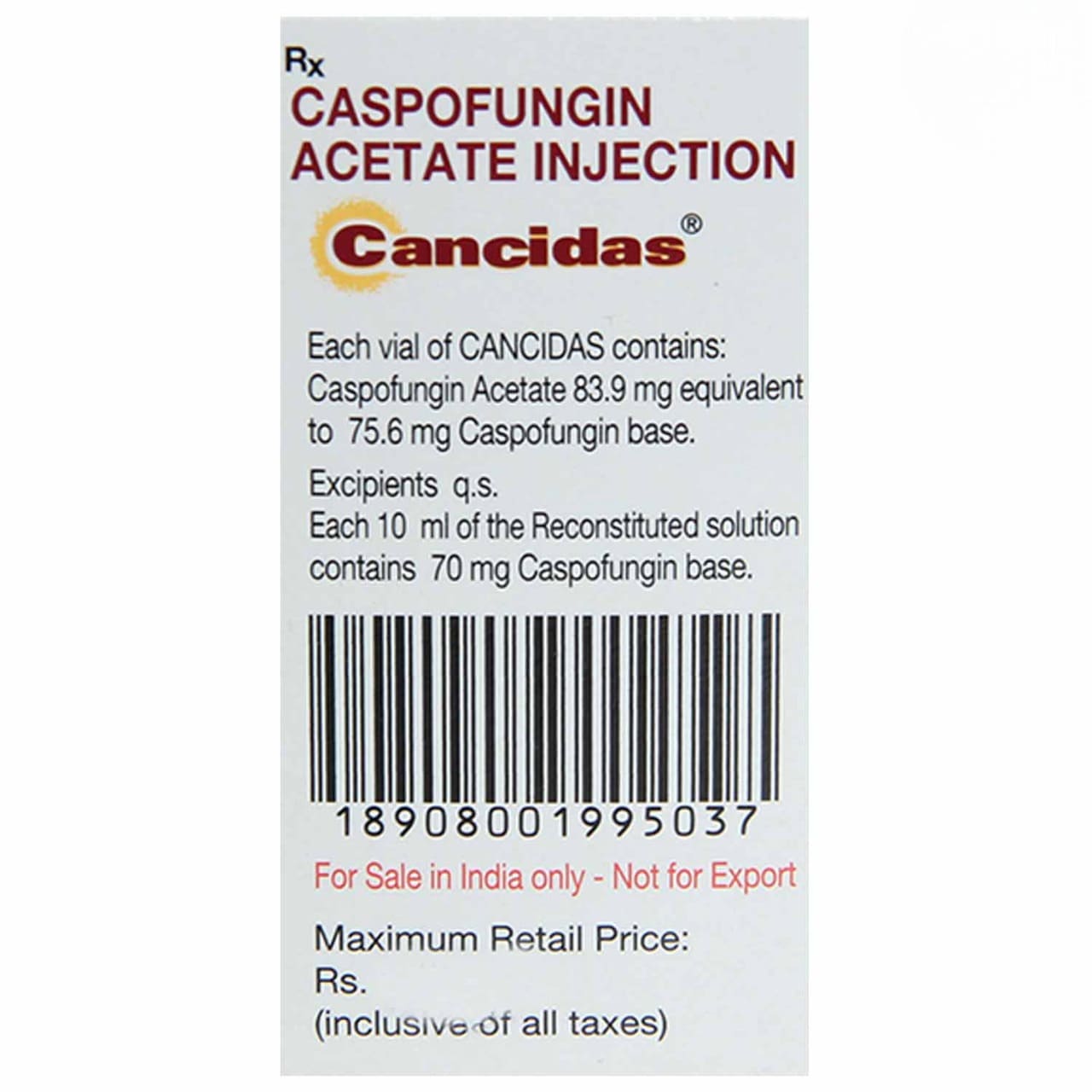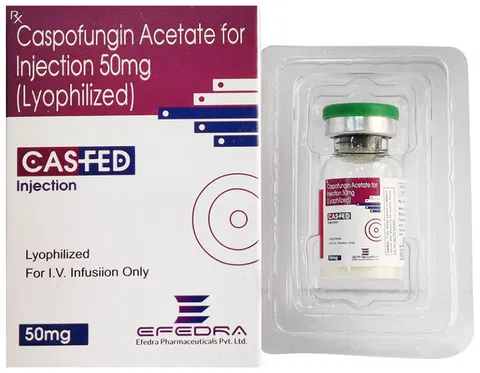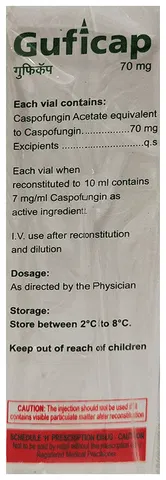Cancidas (Caspofungin) Vial
Branded
Generic
Caspofungin (Generic Equivalent To Cancidas)
Caspofungin (Generic Equivalent To Cancidas)
Caspofungin (Generic Equivalent To Cancidas)
Caspofungin (Generic Equivalent To Cancidas)
Cancidas Vial is an antifungal medication. It is used in the treatment of severe fungal infections. It kills the fungi that cause these infections and thus provides relief.
Cancidas Vial is administered as an Vial by a healthcare professional. Kindly do not self-administer. Do not skip any doses and finish the full course of treatment even if you feel better. Your doctor may monitor your liver function regularly during treatment.
Cancidas Vial may lead to a few common side effects like rash, decreased potassium level in the blood, fever, increased liver enzymes, chills, and diarrhea. You may also notice some Vial site reactions like pain, swelling, or redness. Inform your doctor if these side effects persist for a longer duration. Please consult your doctor if you are pregnant, planning to conceive, or breastfeeding.
Uses Of Cancidas Vial
- Severe fungal infections
Benefits Of Cancidas Vial
In Severe Fungal Infections
Cancidas Vial works by killing the fungi which can cause serious infections. It is given by a doctor or nurse and should not be self-administered. It usually makes you feel better very quickly but you should continue taking it as prescribed even when you feel better to make sure that all the fungi and yeast causing the infection are killed and do not become resistant.
Side Effects Of Cancidas Vial
Most side effects do not require any medical attention and disappear as your body adjusts to the medicine. Consult your doctor if they persist or if you’re worried about them.
Common Side Effects Of Cancidas
- Chills
- Decreased potassium level in blood
- Diarrhea
- Fever
- Increased alkaline phospatase level in blood
- Increased liver enzymes
- Rash
How To Use Cancidas Vial
Your doctor or nurse will give you this medicine. Kindly do not self administer.
How Cancidas Vial Works
Cancidas Vial kills fungus by preventing them from making their protective covering.
Disclaimer :The information provided on the website is intended to facilitate awareness about healthcare products and medical conditions generally but it is not a substitute for professional medical attention or advice. You should always speak with a qualified healthcare practitioner before taking any prescription or non-prescription drug. |
| Product Type--Salt | Generic–Caspofungin (Generic Equivalent To Cancidas), Brands–Cancidas |
|---|---|
| tag--Manufacturer | Best Selling–Efedra Pharmaceuticals, Top Brand–Akumentis Healthcare, Branded–MSD Pharmaceuticals, Best Selling–Akumentis Healthcare, Top Brand–Gufic Biosciences, Branded–MSD Pharmaceuticals |
| Power--Pack Size | 50mg–10ml in 1 Vial (1 Vial), 50mg–10ml in 1 Vial (2 Vials), 50mg–10ml in 1 Vial (4 Vials), 50mg–10ml in 1 Vial (6 Vials), 50mg–10ml in 1 Vial (1 Vial), 50mg–10ml in 1 Vial (2 Vials), 50mg–10ml in 1 Vial (4 Vials), 50mg–10ml in 1 Vial (6 Vials), 50mg–10ml in 1 Vial (1 Vial), 50mg–10ml in 1 Vial (2 Vials), 50mg–10ml in 1 Vial (4 Vials), 50mg–10ml in 1 Vial (6 Vials), 70mg–10ml in 1 Vial (1 Vial), 70mg–10ml in 1 Vial (2 Vials), 70mg–10ml in 1 Vial (4 Vials), 70mg–10ml in 1 Vial (6 Vials), 70mg–10ml in 1 Vial (1 Vial), 70mg–10ml in 1 Vial (2 Vials), 70mg–10ml in 1 Vial (4 Vials), 70mg–10ml in 1 Vial (6 Vials), 70mg–10ml in 1 Vial (1 Vial), 70mg–10ml in 1 Vial (2 Vials), 70mg–10ml in 1 Vial (4 Vials), 70mg–10ml in 1 Vial (6 Vials) |


